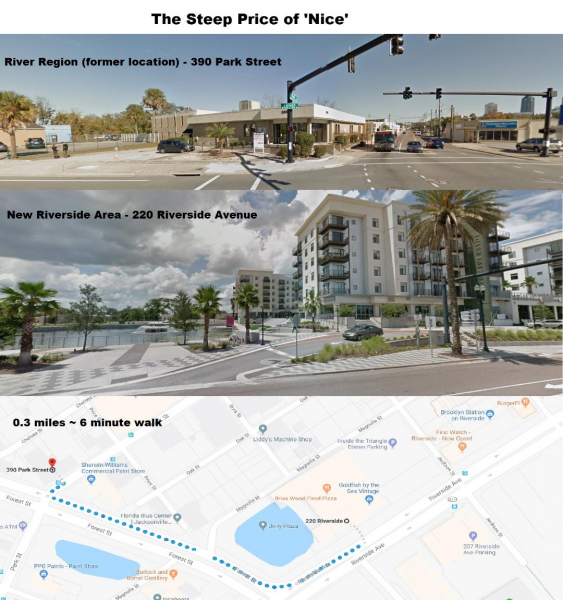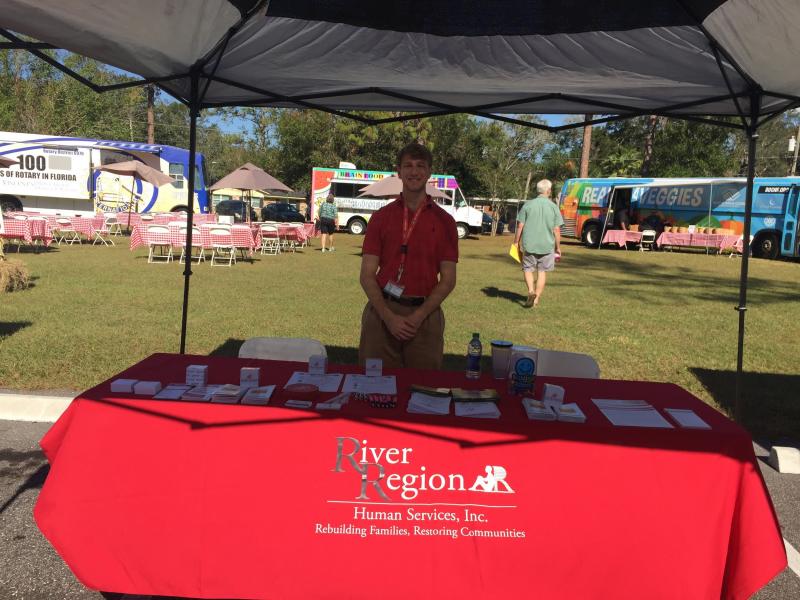The Steep Price of "Nice"
 Gentrification: A word coined so effortlessly by the masses, but also so inherently misunderstood on a concrete level. Before this service term, I knew only of gentrification in an abstract manner. I knew it was a word, I knew its definition, but did I truly know what this meant to the actual people being affected? The struggles and tribulations of my host site, River Region Human Services, have made this once abstract word a palpable force against the clients’ access to care.
Gentrification: A word coined so effortlessly by the masses, but also so inherently misunderstood on a concrete level. Before this service term, I knew only of gentrification in an abstract manner. I knew it was a word, I knew its definition, but did I truly know what this meant to the actual people being affected? The struggles and tribulations of my host site, River Region Human Services, have made this once abstract word a palpable force against the clients’ access to care.
When we discuss urban communities and their barriers to healthcare, we usually think of the typical culprits: lack of public transportation, housing, decreased density and quality of healthcare services, poverty, inadequate insurance, etc. These were the types of barriers I was prepared to help fight alongside my clients this service term. However, I was not prepared at all for the forced removal of River Region Human Services from its central location in downtown Jacksonville.
 When the lease to the River Region Human Services building ended, the faculty were not allowed to renew the lease in the up-and-coming Riverside area. As seen in the picture to the right, the old building on Park Street is a short walk away from the new and expanding Riverside developments. The companies, businesses, and apartment complexes in this area did not want a methadone clinic in the now upscale neighborhood. They undoubtedly wanted to attract the middle class and make the area appear “nicer.” However, the methodology is extremely short-sighted, as now clients who live in Health Zone 1 will no longer have easy access to treatment for addiction and mental health conditions. The new location is now south of the St. John’s river in an area that is relatively isolated from Health Zone 1, public transportation stops, and many patients who need treatment. This could have detrimental effects on the health of the community, and add yet another huge barrier to healthcare access in the most needy of populations.
When the lease to the River Region Human Services building ended, the faculty were not allowed to renew the lease in the up-and-coming Riverside area. As seen in the picture to the right, the old building on Park Street is a short walk away from the new and expanding Riverside developments. The companies, businesses, and apartment complexes in this area did not want a methadone clinic in the now upscale neighborhood. They undoubtedly wanted to attract the middle class and make the area appear “nicer.” However, the methodology is extremely short-sighted, as now clients who live in Health Zone 1 will no longer have easy access to treatment for addiction and mental health conditions. The new location is now south of the St. John’s river in an area that is relatively isolated from Health Zone 1, public transportation stops, and many patients who need treatment. This could have detrimental effects on the health of the community, and add yet another huge barrier to healthcare access in the most needy of populations.
In addition, the forced move of River Region Human Services has put a huge strain on the resources of the agency. With funding so hard to come by, non-profit organizations like River Region really cannot afford drastic changes such as this. Now, at this critical juncture in the agency’s lifespan, they are struggling to stay afloat. Soon, it may be possible that an already struggling River Region loses too many clients to remain financially sustainable, and services may be terminated altogether, putting an even larger strain on the Jacksonville community.
During the crucibles of change, I have witnessed the hardships of a non-profit agency like River Region. This experience has elucidated the importance of policy and healthcare leadership on a political level in determining the destiny of a struggling patient, and of the city as a whole.
The views expressed in this blog do not necessarily reflect the views of River Region staff.
This blog post was written by NHC FL AmeriCorps member, John Newman.
John serves at River Region Human Services as a Patient Navigator.